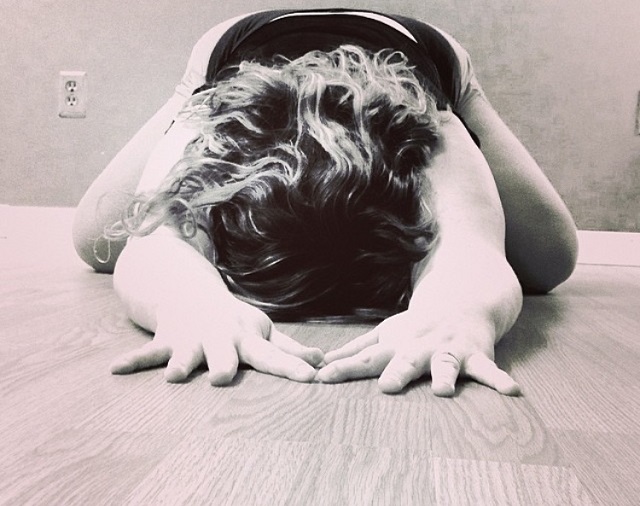
My name is Jamie—I’m an alcoholic and an addict.
I happily introduce myself in this manner at 12-step meetings, even now as a recovering woman with over 12 years sober.
People ask why I still refer to myself in these terms. They regularly challenge me, saying: “Surely Jamie, you’re healed by now? You know so much about trauma too—you teach this stuff for God’s sake! Why do you still call yourself an alcoholic and a drug addict?”
I continue to identify as an alcoholic and an addict because it keeps me in touch with reality.
The reality is that alcohol and drugs won every time. I believe that if I chose to put them back into my body, the chance of them engulfing me again is quite high.
Sure, I now have an enhanced understanding about the traumatic and biochemical origins of my addiction. Yet the reality is, drugs and alcohol made a dangerous impression on my body, mind and spirit. Why would I risk putting that into my body again? Just to prove that enough counseling, specialty trauma therapies and holistic modalities sufficiently healed my brain?
I choose to identify as an alcoholic and addict, to keep me in touch with the reality of where using these substances took me. Being reminded of this reality has special purpose for me because I drank, used, and engaged in other dangerous activities to escape reality.
One of the primary objectives of my recovery and wellness today—just as it was day one sober—is to learn how to more effectively live in reality.
Now I’m not saying that one necessarily has to identify as an alcoholic or addict—or even label oneself anything—if you desire to heal from addiction, compulsive drinking and drug use, or engaging in any unhealthy behavior. There are so many paths to recovery and I generally find that no one path offers “the answer.”
Although I am an advocate for the 12-step recovery program, I’ve outwardly criticized many of the time-honored 12-step practices in my writing and teaching for being too fundamentalist. In my own recovery, I’ve walked the 12-step path, along with other paths like having a regular yoga and meditation practice, in addition to many of the trauma-informed modalities within holistic psychotherapy.
Many colleagues, peers and fellow recovering individuals find this “I am an addict” identification shaming and stigmatizing. I admit that for many—doing so can be.
For me however, identifying myself this way ushers in a new sense of power.
I grew up in a household and a church community which operated from a very old-school moral model, when it came to addiction. I was taught that alcoholism and addiction were manifestations of sin. In my upbringing, the 12-step approach and the disease model were seen as “too soft.”
In my lived experience, finding out that my issues could be viewed through the same lens through which you view any other physical disease was the most empowering information I ever received!
This news empowered me because it meant I could do something about it. Just like with any other disease—treatment, recovery and maintaining wellness measures could be practiced. By admitting the reality of my addictions, I faced reality, and began to heal—venturing along the path, towards a new vision of who I could be.
If someone else’s experience with 12-step recovery was not like mine, I am sorry the program was not beneficial for you in the same way. So many facets of 12-step recovery culture are in need of reform, and my purpose in this article is not to simply convert people to accepting the 12-step way of thinking.
However, please understand that for many of us, the 12-step concept of admitting powerlessness over a substance or a behavior—often expressed by using the “I’m an alcoholic/addict” language—is a gateway to greater empowerment.
There are a variety of philosophical traditions in Eastern and Western culture that promote dialectical thought—the general idea that two opposing constructs can be true at the same time. With rare exceptions, no one path to truth exists.
For me, by admitting one truth—that I am powerless over a substance—I can claim another truth: That I am fundamentally a strong, powerful person.
Admitting my powerlessness over certain substances and behaviors is a way that I can engage in the practice of surrender.
I identify that my addictions and unhealthy attachments made me an unhealthily empty vessel.
In my experience, this identification was necessary to begin filling that vessel with the fruits of new practices that replenished my soul—ultimately achieving a bliss that my beloved sutra describes.
As a result, I am now also able to introduce myself as Jamie—a wife, stepmother, teacher, mentor, friend, dancer, musician, speaker, clinician, movie lover, sister, daughter, yogini, seeker and mystic.
Today I know that I am not just an alcoholic or an addict.
That identification does not comprise my sole identity. Yet admitting this reality helped, and continues to help me see the bigger picture.
Relephant Read:
I Fell, Upward: What Happened after I Stopped Drinking.
Author: Dr. Jamie Marich
Assistant Editor: Yoli Ramazzina / Editor: Renee Picard
Photo: Author’s own.


Read 3 comments and reply